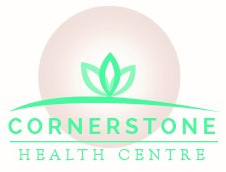Dr. Butwell Explains Degenerative Disc Disease and How Nutrition Helps
Common questions we hear from Georgetown back pain sufferers at Dr. Butwell include: “What is Georgetown degenerative disease?” (Dr. Butwell can explain what degenerative disc disease at the drop of a hat!) and “Can nutrition help?” (“Yes!”)
WHAT IS DEGENERATIVE DISC DISEASE?
Degenerative disc disease results many times from normal, age-related changes that happen in the discs of the spine that produce pain. The spinal discs act like shock absorbers between the vertebral bones of your spine. As discs degenerate, they do not do their job as well. A discs’ health depends on the health of surrounding structures as much as its own health. The cartilage endplates perform a vital role in the health of the disc. Unhealthy endplates do, too, as they may contribute to degenerative disc disease.
HOW CHIROPRACTIC CARE AND NUTRITION HELP DEGENERATIVE DISC DISEASE
Chiropractic care at Dr. Butwell manages disc health from both the inside and outside. The disc requires some special nutritional elements to keep it healthy and strong, ready to keep the spine mobile. It needs glucose, glycosaminoglycan, calcium, magnesium, chondroitin sulfate, and more. It finds these nutrients through the cartilaginous endplates that border it on top and bottom (70%) and from the sides of the disc (30%). The cartilage endplates of the disc that abut the vertebral bodies of the spine provide a major path for nutrients to get into the disc. Permeability of the cartilage endplate increases as it ages and degenerates. Degeneration of the cartilage endplate is linked to the start of cell starvation and death of the disc due to poor nutrition. Degeneration of the cartilage endplate may well be responsible for mechanical load-induced dehydration of the disc’s nucleus pulposus and decreased levels of glucose in the nucleus pulposus (inner gel of the disc)-annulus fibrosus (outer bands of the disc) connection area. (Read more about disc nutrition with glucosamine sulfate and chondroitin sulfate.) (1) The endplates are vital to the disc’s health. When the endplates are harmed by degenerative changes, they cannot do their job of transporting nutrients into the disc. One study stresses this issue by explaining that severe inhibition in the endplate nutritional pathways likely leads to intervertebral disc disruption. (2) Further, a good night’s rest may be good for more than beauty! resting recumbent even for a short time permits an increase in the cervical spine and thoracic intervertebral discs’ hydration volume. (3) Dr. Butwell cares for the disc from the inside with nutrition and the outside with sleep recommendations in addition to spinal manipulation.
Georgetown CHIROPRACTIC TREATMENT HELPS DEGENERATIVE DISC DISEASE
While resting recumbent unloads the spine, dynamic loading of the spine is beneficial, too. How? It comes back to those cartilage endplates yet again. Cartilage endplates’ ability to allow flow of nutrients depends on its porosity. The more porous and healthy the endplates are, the more flow of nutrients is allowed. The less porous, less hydrated, more degenerated the endplates are, the less flow of nutrients is permitted. New research today describes the benefits of dynamic loading (as opposed to static loading) on nutrient transport into the disc via cartilage endplates. (4) Chiropractic spinal manipulation is dynamic treatment of the spine. The protocols of Cox® Technic concentrate on individual segments of the spine to enhance motion where disc degeneration may exist. It is gentle, relieving care delivered daily at Dr. Butwell!
CONTACT Dr. Butwell
Listen to this PODCAST with Dr. Sylvia Hrefna from Iceland on The Back Doctors Podcast with Dr. Michael Johnson as she presents her relieving care with Cox® Technic of a patient with disc degeneration in her cervical spine, the second of two cases in this podcast.

